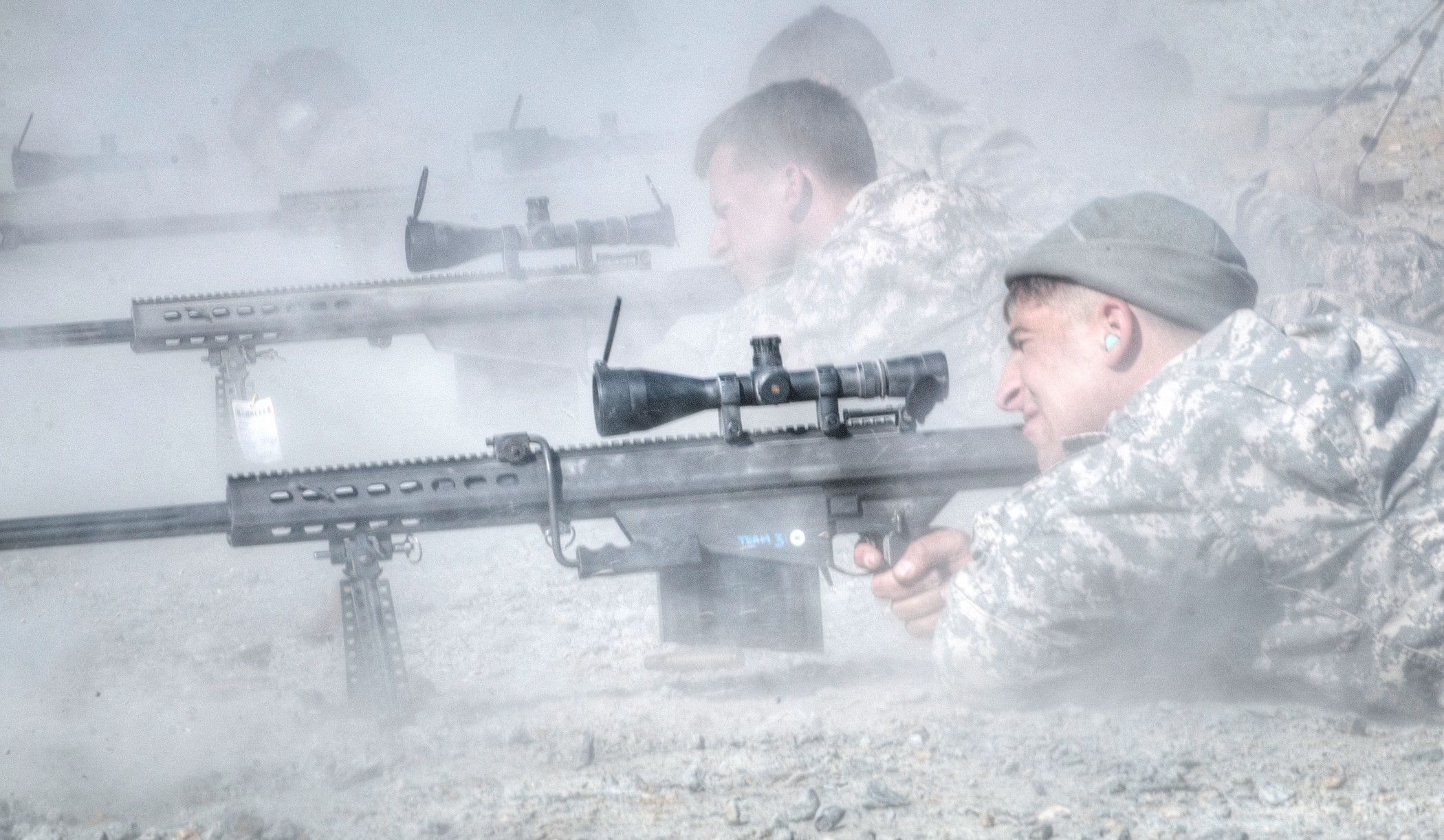Movies about the Iraq and Afghanistan Wars are scarce when compared to the volume of World War I and II and Vietnam-era films. The ones that are have received a smaller reception (The Messenger, Brothers, Green Zone, Body of Lies), with a few exceptions (The Hurt Locker, Zero Dark Thirty). American Sniper – due to the big names associated with it including director Clint Eastwood and Bradley Cooper – will be a seminal addition to the category of recent war films. War films serve as sites of official attitudes about war and underlying societal anxieties. Perhaps because of the Oscar nomination or perhaps because American society is finally ready for a more complex Iraq debate, American Sniper has sparked more political criticism than other current war films.
The New Yorker described American Sniper as “both a devastating war movie and a devastating antiwar movie, a subdued celebration of a warrior’s skill and a sorrowful lament over his alienation and misery.” As one of the few movies showing the recent wars, it has proved polarizing with regard to them, and its subject, real-life Navy SEAL Chris Kyle.
Two camps of opinion have emerged: One heralds American Sniper for its (mostly) accurate depiction of wartime, the demands of the job, the challenges returning servicemen face and soldiers’ personal demons, while the other heavily criticizes director Clint Eastwood for having a political agenda and ignoring key aspects of Iraq. Forbes elaborated on various criticisms, describing them as, “lefty outlets slamming its failure to apologize for American ‘misdeeds’ in Iraq and righty outlets crowing about the picture’s success and praising it for showing a side of military life that Hollywood doesn’t usually go in for.”
Rolling Stone was heavy handed in denouncing American Sniper, saying the film “is a movie whose politics are so ludicrous and idiotic that under normal circumstances it would be beneath criticism” purporting that the movie should be political and skirting around the systemic and political issues of the war is a disservice. There is no way to “accurately” tell the story of these wars. Rather, Hollywood and documentaries (Restrepo) are vehicles for depicting hidden and glossed over truths of what the troops face on a daily basis both physically and emotionally.
There emerges the true core of the debate: Should pop culture depict recent and ongoing conflict in a way this is educational rather than political? While the Washington Post and the New York Times are valuable sources of information, they communicate through statistics instead of individual experiences. Within the context of an expanding civilian-military divide, films and books (fiction and biography) can serve to reach the civilian public in ways that journalism does not.
Some of the very aspects of American Sniper that garnered outraged reactions are realities of war, as major themes from the movie include dissociation, reassimiliation, and loyalty. Chris Kyle is a Navy SEAL sniper – one of the most challenging and elite squads in the US Military – who has 160 confirmed kills and more than 200 probable ones. The film depicts his first kills as a mother and son attempting to detonate a bomb on an approaching convoy. The lesson from this moment is Kyle’s absolute dedication to protecting his brothers in arms, and an important thread not only in the film but the view of any soldier (sailor, airman, Marine, or SEAL). Jon Davis, a former Marine who reviewed the film, said most films “create ridiculously stereotypical caricatures of real people who deserve more respect, and are abysmal failures of research into the actual military methodology that deserves more understanding.” In the case of American Sniper, Eastwood included accurate details of deployment welcomed by servicemen (the water bottle door weight on base, living in a constant state of transition, Kyle’s discomfort over being thanked for serving). Much of the criticism centers on moments that highlight the civilian-military divide. For example, critics have written that the multiple deployments bleed into each other and seem the same; however this is exactly what it feels like to deploy for months at a time. Or when Kyle returns to Iraq, a fellow SEAL says “welcome home.” Having left his wife and children, this may be jolting and incongruous to the viewer, but 15 month deployments change the perception of “home.”
While the film is an important depiction of military life, there are important criticisms, especially in regards to the portrayal of “The Butcher” and the enemy sniper as practically comic book villains. Other servicemen have voiced that a major issue with American Sniper is its inability to “try to see actual Iraqi people.” Kyle’s politics and vocabulary are not to be glossed over in their derogatory treatment of Iraqis. However, there is important psychology by Dave Grossman that shows distance from “the enemy” is important in avoiding psychological fallout: mental preparation and dehumanizing practices are what allow soldiers and SEALs to kill without being worse for wear. It is too easy to say the military fosters discrimination when managing forces in transition, but psychological distance helps prevent against crippling PTSD.
Regardless of extreme arguments, the issue itself is complicated and compelling. Conversation about various facets of the Iraq War and the citizen-military divide is an important dialogue, perhaps best initiated by relatable and in-depth pop-culture. Ultimately, the film – and our greater societal reflection – is “about soldiers and the nature of war…the simple truth that everybody involved is a casualty of war, whether they survive or not.”
